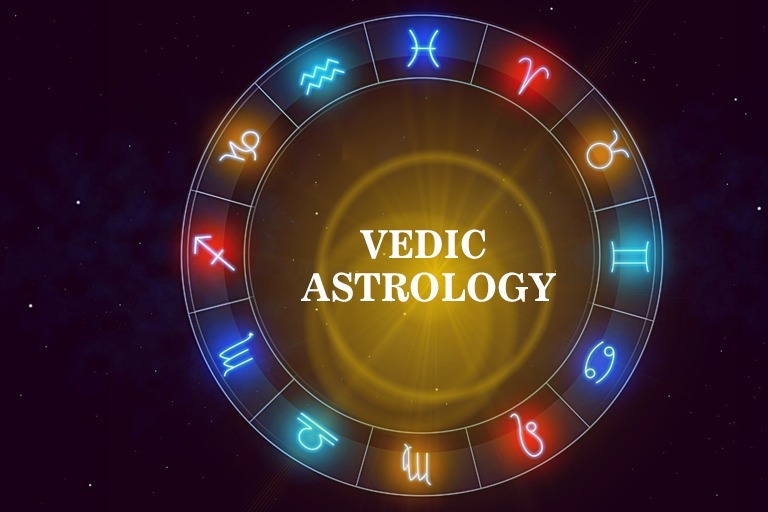
Mercury retrograde has become one of the most widely discussed For Vedic Astrology in both Western and Vedic astrology, often associated with chaos, confusion, and miscommunication. While its reputation is largely driven by popular culture, the truth behind Mercury retrograde is far more nuanced in Vedic astrology. In this article, we will explore the myths surrounding Mercury retrograde and separate them from the reality, shedding light on how this planetary period is viewed in the Vedic astrological tradition and how it can be a time for growth, reflection, and spiritual development.
In Western astrology, Mercury retrograde is often seen as a period marked by communication breakdowns, technology failures, and travel disruptions. While these associations are not without basis, the way Mercury retrograde is viewed in Vedic astrology is more focused on the internal and spiritual dimensions of life. In Vedic astrology, Mercury is considered a planet that governs communication, intellect, and learning, but it is also deeply tied to our thought processes, speech, and daily interactions. When Mercury goes retrograde, it is seen as an opportunity to reflect, reassess, and revisit past situations—whether it be old relationships, unfinished projects, or unresolved issues. Rather than creating havoc, Mercury retrograde in Vedic astrology offers a chance to correct past mistakes, resolve misunderstandings, and gain new insights.
One common myth associated with Mercury retrograde is that it causes widespread disruption, such as delays in communication or mishaps during travel. While it is true that Mercury retrograde can bring challenges in these areas, the reality in Vedic astrology is that these challenges are not inherently negative. Instead, they offer an opportunity for re-evaluation. The retrograde motion of Mercury symbolizes a time to pause and reflect on what has already occurred, rather than rushing forward with new plans or decisions. This period encourages introspection, allowing individuals to resolve unfinished business, strengthen relationships, and reconsider their approach to communication and technology. In essence, Mercury retrograde in Vedic astrology is about slowing down and revisiting rather than rushing ahead.
Another popular misconception is that Mercury retrograde should be feared or avoided altogether. In Vedic astrology, the retrograde period is not seen as inherently harmful or ominous. In fact, retrograde periods are a natural part of the planetary cycle and can be viewed as an essential phase for spiritual and mental growth. The retrograde motion of Mercury is considered a time of deep introspection and healing. By reviewing past actions, confronting unresolved issues, and reassessing personal beliefs, individuals can experience personal transformation. Rather than fearing Mercury retrograde, Vedic astrology suggests embracing it as an opportunity for inner work. It is a time when individuals can cleanse their minds of old patterns, gain clarity on their purpose, and make more informed decisions once the retrograde period ends.
A common myth in popular culture is that all aspects of life must be paused during Mercury retrograde, especially major life events like signing contracts or starting new projects. While there is some truth to the idea that Mercury retrograde is not ideal for starting long-term commitments, Vedic astrology offers a more balanced perspective. The retrograde period is a time when certain activities, such as launching new ventures or making significant purchases, may be met with delays or unforeseen complications. However, it is also a time for revisiting and revising existing plans. In Vedic astrology, reworking old projects, revising contracts, and reviewing past relationships are highly favored during Mercury retrograde. It is not a time to avoid activity altogether, but rather a time to reassess and refine what is already in motion. This period can be especially beneficial for those who are working on personal growth, spiritual practices, or healing past wounds.
The relationship between Mercury and its dasha or planetary periods in Vedic astrology is another important aspect that adds depth to the understanding of Mercury retrograde. Each person’s birth chart is influenced by the Dasha system, which determines the planetary periods that guide one’s life. If a person is undergoing a Mercury Dasha or Mercury Mahadasha, the retrograde period may have a more significant impact on their life, prompting them to review their communication, relationships, and intellectual pursuits. For individuals experiencing a Mercury Dasha, retrograde cycles can provide opportunities for deeper healing and clearing of mental blocks. By understanding how Mercury’s retrograde motion fits into the broader context of their personal planetary cycles, individuals can gain a better understanding of how to navigate this period effectively.
Lastly, it’s essential to understand that Mercury retrograde is not the same for everyone. Its impact varies depending on the individual’s personal birth chart and the placement of Mercury. For instance, a person with a strong Mercury in their chart may feel its retrograde effects differently than someone with a weak Mercury placement. Mercury’s retrograde motion may be more intense for individuals with a prominent 3rd house (governing communication) or 6th house (associated with daily routines and work), while others may experience minimal disruption. Additionally, the specific zodiac sign and Nakshatra in which Mercury is retrograde can influence how the energy is expressed. For example, Mercury retrograde in Gemini (its natural sign of rulership) may emphasize communication, mental clarity, and social connections, while in Pisces, it might prompt reflection on spiritual matters, intuition, and emotional well-being. Vedic astrologers analyze these nuances to offer personalized guidance during this period.
In conclusion, Mercury retrograde in Vedic astrology is not as dire as it is often portrayed in popular culture. Rather than a time of constant disruption, it is a natural period for introspection, re-evaluation, and personal growth. By understanding the true significance of Mercury retrograde, individuals can embrace this time as an opportunity to address unresolved issues, revisit old projects, and gain deeper insights into their communication and thought patterns. It is a period that encourages reflection, refinement, and healing. Far from being something to avoid or fear, Mercury retrograde in Vedic astrology offers a valuable chance to slow down, reflect, and realign with one’s goals and purpose.
4o mini